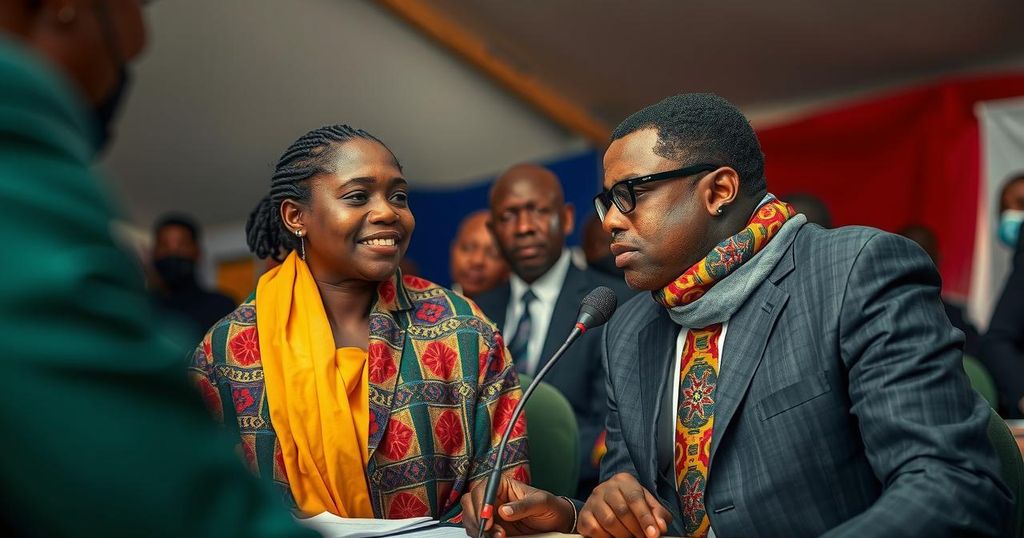Namibia is holding elections with Netumbo Nandi-Ndaitwah of Swapo aiming to be the first female president, competing against IPC’s Panduleni Itula. The election could reshape the political landscape amidst growing dissatisfaction over unemployment and corruption. Voting has begun amidst significant public engagement, with young voters likely to influence the results.
Voting is currently taking place in Namibia, marking what is anticipated to be the most competitive election since the country’s independence from South African rule 34 years ago. Netumbo Nandi-Ndaitwah, representing the ruling South West Africa’s People’s Organisation (Swapo), aspires to become the first female president of Namibia. She is succeeding Hage Geingob, the previous president who passed away in February. However, rising issues related to unemployment, poverty, inequality, and allegations of corruption have weakened the party’s once steadfast support.
Her principal opponent, Panduleni Itula, hails from the Independent Patriots for Change (IPC) and previously secured 29% of the votes in the 2019 elections. The electoral proceedings commenced at 07:00 local time, with long queues reported at various polling stations as citizens engage in the democratic process. A candidate must garner over 50% of the votes for a decisive victory; otherwise, a runoff will ensue between the highest two candidates.
As part of the election process, Namibians are also voting for new members of parliament, reflecting the overarching significance of this electoral cycle. The demographic trends indicate that young voters, constituting over half of the electorate, could greatly influence the election’s outcome. Interim President Nangolo Mbumba, who stepped in following Geingob’s death, is not a candidate in this election. Nandi-Ndaitwah encourages participation, emphasizing that voting will affect citizens’ lives over the next five years.
Namibia’s political landscape has been predominantly shaped by the Swapo party since its rise to independence in 1990, serving as a fundamental pillar in the country’s governance. The current election presents a critical juncture for the nation, with significant public discontent over issues such as unemployment and corruption threatening Swapo’s longstanding dominance. The entry of other parties like the IPC has escalated competition, particularly among younger voters who are increasingly seeking alternatives to the status quo. This election is further compounded by the death of former President Hage Geingob, creating a leadership void that might affect voter sentiment.
In summary, Namibia is currently engaged in a pivotal electoral process that may redefine its political landscape. With competition heating up between Nandi-Ndaitwah of Swapo and Itula from IPC, the outcome will significantly depend on voter turnout, especially among the youth. As Namibians exercise their democratic rights, the implications of this election could resonate profoundly over the coming years, potentially altering the trajectory of governance in the country.
Original Source: www.bbc.com






